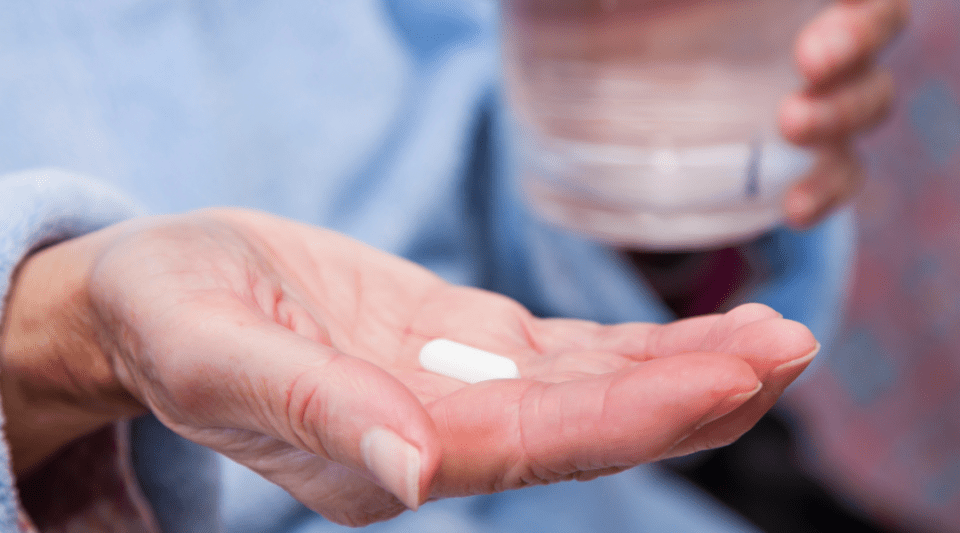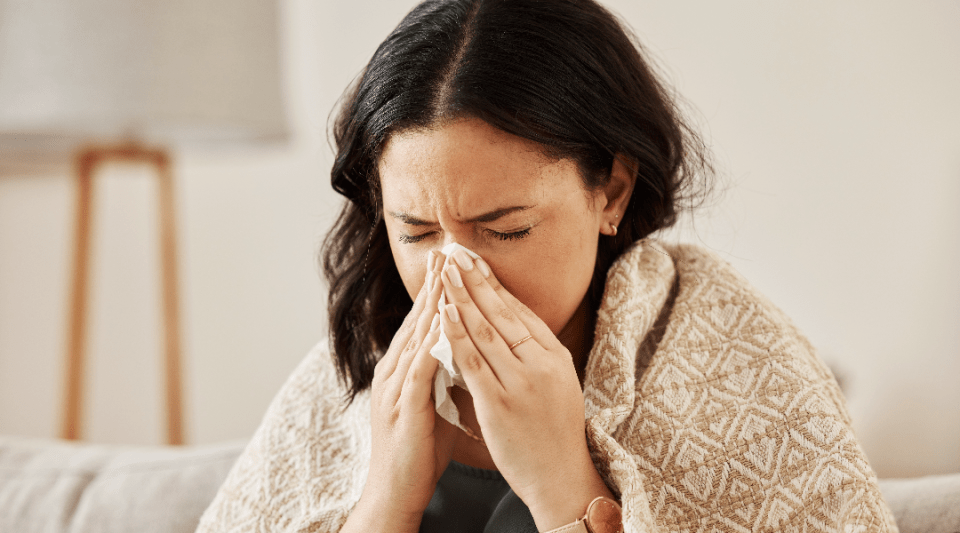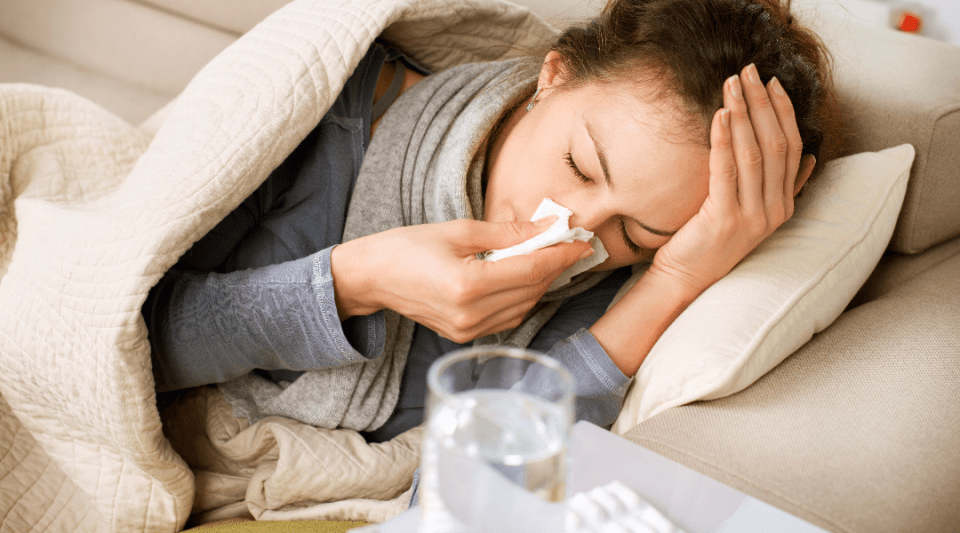29 April 2025
Flu prevention
The most effective preventive measure against flu infection is annual vaccination. The vaccine is recommended for anyone over 6 months of age. It reduces the risk of contracting the infection by 40%-60% in the general population. In addition, if a vaccinated person gets the flu, the symptoms are usually milder, with a reduced risk of complications, hospitalisation and death.
An updated vaccine against the flu virus is available every autumn. This is because viruses change every year, and the vaccine is prepared to work against the strains likely to be prevalent. The vaccine reduces the risk of infection and complications, without completely eliminating it, and also helps to reduce the spread of the virus in the community.
Getting vaccinated is vital to reduce the transmission of these diseases and to prevent complications.
A vaccinated person may have flu-like symptoms for several reasons:
- The vaccination campaign against influenza and COVID-19 mainly lasts from mid-October to mid-December, during a period when other, less serious respiratory viruses tend to be prominent. A flu epidemic usually reaches Catalonia at the end of December or the beginning of January and lasts until March or April. Therefore, it does not coincide with most of the vaccination period.
- To reach optimum protection, up to two weeks must pass after vaccination; so a person could be infected immediately before vaccination or during this 2-week period.
What does the Flu vaccine contain?
The flu vaccine contains three or four strains of the influenza virus: two strains of influenza type A and one (or two) strains of influenza type B. This composition of the vaccine includes the influenza viruses that are most likely to be around during the flu season.
The World Health Organisation selects the influenza vaccine each year based on the likelihood of each strain of the virus being present in an epidemic season.
The influenza vaccine is elaborated mainly by growing viruses in embryonated chicken eggs. The viruses are then inactivated and fragmented.
In adults, the inactivated vaccine is administered via an intramuscular or subcutaneous injection in the arm. In children, the flu vaccine is given intramuscularly in the thigh. An intranasal vaccine, made with three types of live attenuated viruses, is also available for children between 24 and 59 months of age.
People may be infected by a virus or a virus variant which is different from those included in the vaccine, or may not develop adequate protection for their age or health status.
Who should get vaccinated?
As in previous seasons, the 2024-2025 autumn vaccination campaign is carried out jointly for both flu and COVID-19 vaccines.
The campaign is especially aimed at people who are at high risk of complications if they suffer from influenza or COVID-19, especially the elderly and pregnant women. Vaccination is also recommended for those people or groups who can transmit influenza to high-risk individuals.
The ideal period to be vaccinated against influenza and COVID-19 is the autumn (although vaccination can also be carried out throughout the season until March).

Between 6 and 59 months of age.

From 6 months of age with underlying diseases that increase the risk of complications from influenza (consult a health professional).

From 6 months of age who live with patients at risk or with other children.
Adults
Different types of injected vaccines are available, especially the high-load and adjuvant vaccines.
The vaccine is recommended for people:

Aged 60 years or over.

Aged 50 years or over in nursing homes, centres for the disabled and other long-term institutions.

Under 60 years of age (including children aged 6 months or older) with risk conditions.

People with immunodepression.

Women at any stage of a pregnancy or those who have had a child in the last 6 months.

Those aged 5 to 18 years who receive prolonged treatment with acetylsalicylic acid.

Smokers.

People with celiac disease.

People with a cerebrospinal fluid fistula or cochlear implant (or waiting for such an implant).

People of any age over 6 months hospitalised for extended periods.

People who can transmit flu to those with a high risk of suffering complications:
- Healthcare professionals, in both the public and private sectors, particularly those who care for patients belonging to high risk groups.
- People who work in nursing homes or chronic care centres, especially with continuous contact with vulnerable people.
- People who provide home care to high-risk patients or elderly people.
- Students on internships in healthcare centres.
- Other groups: workers in law enforcement agencies, firefighters, civil protection, prison officers and emergency health personnel.

People with direct occupational exposure to domestic birds or pigs, as well as wild birds and wildlife.

Teaching staff, especially in nurseries and early childhood education centres (under 5 years of age)
Who should not be vaccinated?
People who have had a severe allergic reaction to the flu vaccine, regardless of the suspected component, are contraindicated for flu vaccination. However, anyone who experiences a severe allergic reaction (angioedema, difficulty in breathing, dizziness) or hives after exposure to eggs, can be vaccinated against flu.
Children under 6 months of age should not be vaccinated. Nor should people with acute fever, who should wait until they have fully recovered.
Side effects of the Flu vaccine
The most frequent side effects after vaccination are local, mild and transient. The most common are pain at the injection site and muscle pain. Children may develop fever, malaise and aching muscles.
These side effects usually disappear within 48 hours.
Preventive measures for people with the Flu
Anyone visiting a health care centre (e.g. a hospital, emergency department, day hospital or outpatient clinic) with signs or symptoms compatible with a communicable respiratory infection, as well as anyone accompanying them, should adopt the following preventive measures:

Patients with a cough must wear a surgical mask while they wait to be seen and throughout the entire period they are receiving healthcare.

Disposable tissues should be used to cover the mouth and nose when coughing or sneezing.

Used tissues should be disposed of in dedicated waste bins.

Hand hygiene should be performed with soap and water or alcohol-based preparations after sneezing or touching respiratory secretions.

Touching the mucous membranes of the eyes and nose with dirty hands should be avoided.
Substantiated information by:



Published: 10 March 2020
Updated: 18 March 2025
Subscribe
Receive the latest updates related to this content.
Thank you for subscribing!
If this is the first time you subscribe you will receive a confirmation email, check your inbox
Flu related news
28 November 2023
The health risks of cold and low temperatures
16 November 2023


